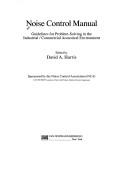| Listing 1 - 8 of 8 |
Sort by
|
Book
Year: 1991 Publisher: Cambridge, Mass. National Bureau of Economic Research
Abstract | Keywords | Export | Availability | Bookmark
 Loading...
Loading...Choose an application
- Reference Manager
- EndNote
- RefWorks (Direct export to RefWorks)

ISBN: 0421374802 9780421374805 Year: 1991 Publisher: London: Sweet and Maxwell,
Abstract | Keywords | Export | Availability | Bookmark
 Loading...
Loading...Choose an application
- Reference Manager
- EndNote
- RefWorks (Direct export to RefWorks)
International law --- Droit international --- 341 --- -341.0268 --- Ra1.i --- Law of nations --- Nations, Law of --- Public international law --- Law --- Internationaal recht. Volkenrecht --(algemeen) --- Cases --- 341 Internationaal recht. Volkenrecht --(algemeen) --- Droit international - Sources --- Droit international - Jurisprudence --- -Cases

ISBN: 0442008511 Year: 1991 Publisher: New York (N.Y.) : Van Nostrand Reinhold,
Abstract | Keywords | Export | Availability | Bookmark
 Loading...
Loading...Choose an application
- Reference Manager
- EndNote
- RefWorks (Direct export to RefWorks)
Book
ISBN: 0905853288 Year: 1991 Publisher: London : University college. Institute of archaeology,
Abstract | Keywords | Export | Availability | Bookmark
 Loading...
Loading...Choose an application
- Reference Manager
- EndNote
- RefWorks (Direct export to RefWorks)
Book
Year: 1991 Publisher: Cambridge, Mass. National Bureau of Economic Research
Abstract | Keywords | Export | Availability | Bookmark
 Loading...
Loading...Choose an application
- Reference Manager
- EndNote
- RefWorks (Direct export to RefWorks)
Book
ISBN: 0442319312 Year: 1991 Publisher: New York, N.Y. : Van Nostrand Reinhold,
Abstract | Keywords | Export | Availability | Bookmark
 Loading...
Loading...Choose an application
- Reference Manager
- EndNote
- RefWorks (Direct export to RefWorks)
Office layout. --- Bureaux --- Aménagement
Book
Year: 1991 Publisher: Cambridge, Mass.: National Bureau of Economic Research
Abstract | Keywords | Export | Availability | Bookmark
 Loading...
Loading...Choose an application
- Reference Manager
- EndNote
- RefWorks (Direct export to RefWorks)
Book
Year: 1991 Publisher: Cambridge, Mass. National Bureau of Economic Research
Abstract | Keywords | Export | Availability | Bookmark
 Loading...
Loading...Choose an application
- Reference Manager
- EndNote
- RefWorks (Direct export to RefWorks)
It is often claimed that multinational firms avoid taxes by shifting income from high-tax to low-tax countries. Using a five year panel of data for two hundred large U.S. manufacturing firms, we find that U.S. tax liability, as a fraction either of U.S. sales or U.S. assets, is related to the location of foreign subsidiaries in a way that is consistent with tax-motivated income shifting. Having a subsidiary in a tax haven, Ireland, or one of the "four dragon" Asian countries - all characterized by low tax rates - is associated with lower U.S. tax ratios. Having a subsidiary in a high-tax region is associated with higher U.S. tax ratios. These results suggest that U.S. manufacturing companies shift income out of high-tax countries into the U.S., and from the U.S. to low-tax countries. Such behavior certainly lowers worldwide tax liabilities for larger U.S. manufacturing companies and appears to significantly lower their U.S. tax liabilities as well.
| Listing 1 - 8 of 8 |
Sort by
|

 Search
Search Feedback
Feedback About UniCat
About UniCat  Help
Help News
News